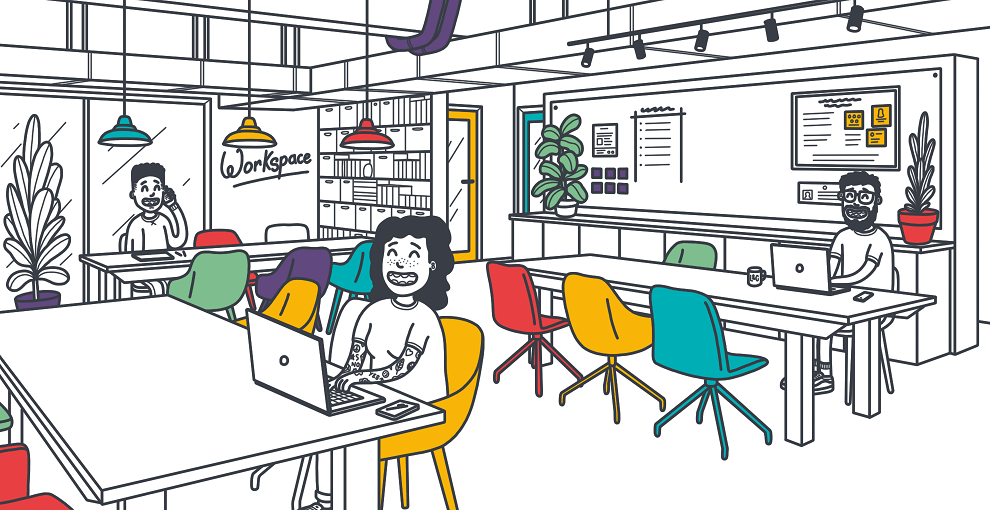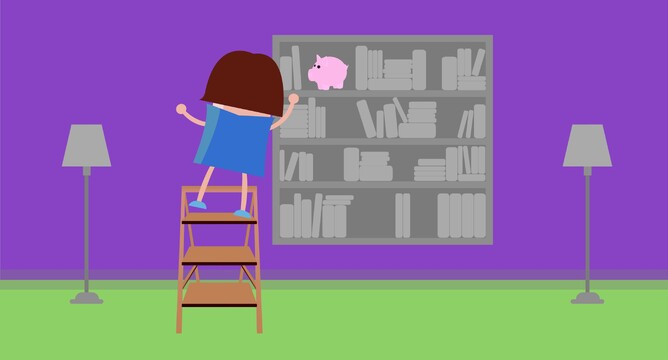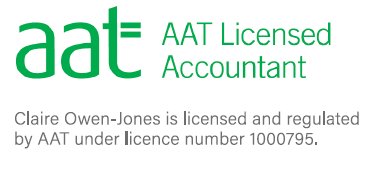You're in business, you're making sales, you're busy and everything is going great. Everyone wants to work with you. Your reputation is sturdy. Competitors copy you. You've recently taken on more staff and now have a larger office. Look up success in the dictionary and there will be a big picture of you.
Do you feel successful though?
Are you able to go home and close the door on work or does that month end payroll keep you awake at night? You see the pile of invoices on your desk every morning and you know that there just aren't the funds in the bank to pay them. Work is stressful. Really stressful right now.
When we start to feel a shortage of cash looming in the distance, our first instinct is to get more customers. It's that narrowing of focus, "if I get one more sale, that will pay the rent" mentality. Maybe you cut prices, maybe you spend a little more on marketing or perhaps you attend one more networking event. Either way, you make yourself busy. And when you're busy you tend to forget admin tasks because they're not important or you push aside the jobs that you don't quite like as much. It's only fair after all because if work isn't bringing you much joy at the moment, you might as well try to prioritise what you enjoy doing.
One job that generally falls into both the admin task and the "oh I hate doing this" category is chasing customers for payment. You've spent ages building up a relationship with your customers; they like you. The last thing you want to do is damage that relationship and that trust by reminding them to pay you.
The problem is that if your customers don't pay you, there is no money coming into your business. And if you are still providing your service or handing over those products and no one is paying you for this; well I fear you may have just created a stressful hobby. You need to remind yourself that this is money that is owed to you. It's a pot of cash just out of arms reach and possibly a morning of phone calls or emails will give your cash flow a welcome boost.
If customers are taking longer to pay you, or they are not doing so without a lot of work on your part, it may be worth reviewing who you work with. Or even simply the systems you have in place when it comes to credit control.
After all, as alien or as bizarre as it seems, not all customers want to pay you…
The good payers
We all love a good payer. These are the ones that you send out an invoice and there is never any quibble or delay; the money goes straight into the bank. Can I set up a direct debit so I can pay you monthly? Why, yes you can.
Get more of these customers. Treasure them. Keep them safe.
The slow payers
Slow payers are harder to define as one person's slow payer is another person's good payer. Quite often this can be down to a mismatch between your own credit terms and when you pay your suppliers. By this I mean, if you pay your suppliers by direct debit or you get out the card and settle immediately, but you give 30 day's credit to your customers. Someone who takes 30 days to pay you is going to feel really slow.
Slow payers may also need a gentle prompt every now and again. They're the sort of customer that is a good payer but very busy and a little forgetful. So, they just need that nudge or friendly wave to remind them that they've put your invoice down and overlooked it. Again.
The bad payers
The bad payers are the ones that like to really push your credit terms. You give them 30 and they'll ask for 45. The cheques bounce. They'll pay you tomorrow. Getting payment takes forever and is always a chore, but you get paid in the end.
These can also be customers who have bad customers themselves. Because of this, awaiting payment can feel as though you are in a house buying chain. Everyone is waiting for the one person to receive their money so that can be handed down and so on. Clearly this isn't always the fault of your customer but equally you don't want your business to be harmed by someone else's poor credit control.
The non-payers
These are a delight, aren't they?! The customers who think they can take your service or products for free. The ones who invent "issues" or moan about poor quality so they can avoid paying.
As an accountant with more year's experience than I hope my face lets on; I can tell you that everyone has the joy of a non-payer at least once. If you're lucky then bad debt is a bump in the entrepreneur journey but for some very unlucky businesses, it can mean game over.
So, my advice is to keep on top of your credit terms. If you give people 30 days then try your best to make sure that you are paid within those 30 days. Aim for 25 rather than 35.
There is software out there that can help. There are credit control agencies that can help. Pick your accountant's brain about factoring. Be honest to your bank and extend your overdraft a tad if that eases the pressure during slow months. Do a cash flow forecast. Sack the bad payers and if you get a new customer that raises a little alarm in the back of your head, make a call as to whether it's worth the risk.
Do you feel successful though?
Are you able to go home and close the door on work or does that month end payroll keep you awake at night? You see the pile of invoices on your desk every morning and you know that there just aren't the funds in the bank to pay them. Work is stressful. Really stressful right now.
When we start to feel a shortage of cash looming in the distance, our first instinct is to get more customers. It's that narrowing of focus, "if I get one more sale, that will pay the rent" mentality. Maybe you cut prices, maybe you spend a little more on marketing or perhaps you attend one more networking event. Either way, you make yourself busy. And when you're busy you tend to forget admin tasks because they're not important or you push aside the jobs that you don't quite like as much. It's only fair after all because if work isn't bringing you much joy at the moment, you might as well try to prioritise what you enjoy doing.
One job that generally falls into both the admin task and the "oh I hate doing this" category is chasing customers for payment. You've spent ages building up a relationship with your customers; they like you. The last thing you want to do is damage that relationship and that trust by reminding them to pay you.
The problem is that if your customers don't pay you, there is no money coming into your business. And if you are still providing your service or handing over those products and no one is paying you for this; well I fear you may have just created a stressful hobby. You need to remind yourself that this is money that is owed to you. It's a pot of cash just out of arms reach and possibly a morning of phone calls or emails will give your cash flow a welcome boost.
If customers are taking longer to pay you, or they are not doing so without a lot of work on your part, it may be worth reviewing who you work with. Or even simply the systems you have in place when it comes to credit control.
After all, as alien or as bizarre as it seems, not all customers want to pay you…
The good payers
We all love a good payer. These are the ones that you send out an invoice and there is never any quibble or delay; the money goes straight into the bank. Can I set up a direct debit so I can pay you monthly? Why, yes you can.
Get more of these customers. Treasure them. Keep them safe.
The slow payers
Slow payers are harder to define as one person's slow payer is another person's good payer. Quite often this can be down to a mismatch between your own credit terms and when you pay your suppliers. By this I mean, if you pay your suppliers by direct debit or you get out the card and settle immediately, but you give 30 day's credit to your customers. Someone who takes 30 days to pay you is going to feel really slow.
Slow payers may also need a gentle prompt every now and again. They're the sort of customer that is a good payer but very busy and a little forgetful. So, they just need that nudge or friendly wave to remind them that they've put your invoice down and overlooked it. Again.
The bad payers
The bad payers are the ones that like to really push your credit terms. You give them 30 and they'll ask for 45. The cheques bounce. They'll pay you tomorrow. Getting payment takes forever and is always a chore, but you get paid in the end.
These can also be customers who have bad customers themselves. Because of this, awaiting payment can feel as though you are in a house buying chain. Everyone is waiting for the one person to receive their money so that can be handed down and so on. Clearly this isn't always the fault of your customer but equally you don't want your business to be harmed by someone else's poor credit control.
The non-payers
These are a delight, aren't they?! The customers who think they can take your service or products for free. The ones who invent "issues" or moan about poor quality so they can avoid paying.
As an accountant with more year's experience than I hope my face lets on; I can tell you that everyone has the joy of a non-payer at least once. If you're lucky then bad debt is a bump in the entrepreneur journey but for some very unlucky businesses, it can mean game over.
So, my advice is to keep on top of your credit terms. If you give people 30 days then try your best to make sure that you are paid within those 30 days. Aim for 25 rather than 35.
There is software out there that can help. There are credit control agencies that can help. Pick your accountant's brain about factoring. Be honest to your bank and extend your overdraft a tad if that eases the pressure during slow months. Do a cash flow forecast. Sack the bad payers and if you get a new customer that raises a little alarm in the back of your head, make a call as to whether it's worth the risk.







